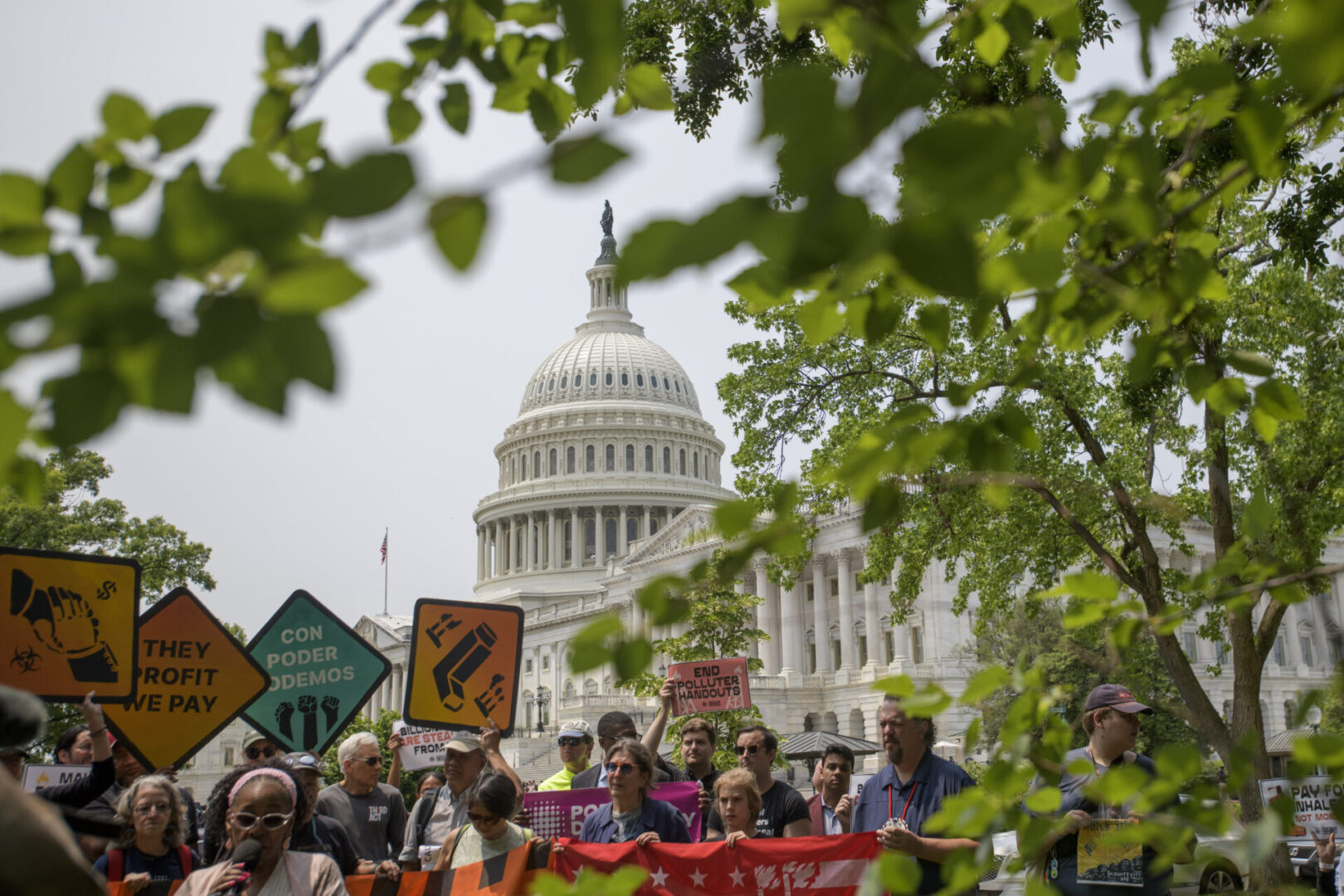Euphemistically called the One Big Beautiful Bill (OBBB), the budget passed by the Republican-controlled Congress, 215-214, attacks one of our best investments: the climate-smart economy. In combination with other White House actions, it harms America’s and Pennsylvania’s businesses and communities, hinders us on the global stage and consigns us to a hotter, more violent climate.
It is really the One Big Belligerent Bill. As climate researchers and teachers at three of Pennsylvania’s storied higher education institutions, we are especially concerned.
We have wrapped the Earth in a thicker blanket of greenhouse gases by burning fossil fuels. Human activity has raised global temperatures more than 2 degrees Fahrenheit (just under 1.5 degrees Celsius) over the 20th-century baseline, driving ever more violent weather. 2024 was the hottest year on record. The United States experienced 27 billion-dollar disasters. In recent years, Pennsylvanians have experienced record heat waves, Canadian wildfire smoke, flash floods and escalating insect-borne disease.
As written, the OBBB would end effective and popular renewable energy tax credits, introduce draconian timelines and eliminate manufacturing incentives. These are confounding choices. Bipartisan policies have generated tens of thousands of clean energy jobs. The Rhodium Group and MIT show that private investment in clean energy rose from $173 billion to $273 billion from 2022 to 2024. Billions were invested in Pennsylvania. Last week, the Solar Energy Industry Association projected that America would lose out on $285 billion in investment in solar, 330,000 jobs, and 331 factories.
It is no wonder that three-quarters of Americans and Pennsylvanians support renewable energy tax credits and research investment. Last week, 13 Republican Congressmen including Pennsylvania’s Ryan Fitzpatrick, wrote to the Senate asking them to change the bill (they voted for) because it “jeopardizes ongoing development, discourages long-term investment, and could significantly delay or cancel energy infrastructure projects across the country.”
According to the U.S. Energy Information Agency, Pennsylvania is the fourth largest source of greenhouse gas emissions. We are also the nation’s second biggest electricity exporter, powering the northeast. Over 65% of Pennsylvania’s electricity comes from carbon-intensive natural gas and coal. About 35% comes from carbon-free sources, mostly nuclear power followed by renewables including wind and solar. When Pennsylvania changes, we will change the nation and the world.
In recent years, solar sector jobs grew rapidly and attracted younger workers. Last fall, approximately 24 gigawatts of solar projects were headed toward completion in Pennsylvania’s grid operator, PJM. In 2022, over 30% of the solar workforce was in Gen Z. A recent LinkedIn survey shows they want to work in businesses that reflect their values. Harris and 4-H polling finds climate is at the top of youth’s minds. They yearn for action on climate change. As people who have worked in higher education for decades, we are unsurprised and overjoyed that our former students are leading the way.
Pennsylvania higher education institutions and communities have been responding. Our own institutions’ are in some of the commonwealth’s most ambitious solar power purchase agreements. Meanwhile, from Mechanicsburg to Pittsburgh, municipalities are developing climate-smart comprehensive and capital improvement plans and projects. They are solarizing buildings and wastewater treatment plants, hosting and promoting solar cooperatives and figuring out ways to advance responsible utility-scale solar development that partners with farmers and landowners for brownfield redevelopment. They get it.
We must see the OBBB as part of a war on climate, innovation, science and the next generation. Since day one, the White House has unleashed orders and cancelled grants, the net effect of which boosts fossil fuels and hampers renewable energy and climate sense. Trump withdrew the United States from the Paris Agreement, placing us alongside Iran, Yemen and Libya as the only nations outside of this framework. We are handing China global leadership.
The One Big Belligerent Bill will harm America’s and Pennsylvania’s futures. The climate crisis is growing in magnitude and severity every day. We cannot risk the delay of economic, environmental and social goals at a time when research, industry, community and youth are motivated to act.
Dr. Peter Buck is the Co-Director of Penn State’s Local Climate Action Program and President of the Pennsylvania Environmental Resource Consortium. Dr. Michael E. Mann is Presidential Distinguished Professor of Earth & Environmental Science and Director of the Center for Science, Sustainability and the Media at the University of Pennsylvania. Ken Shultes is the former Associate Vice President for Sustainability and Facilities Planning at Dickinson College. They do not speak for their respective institutions.



